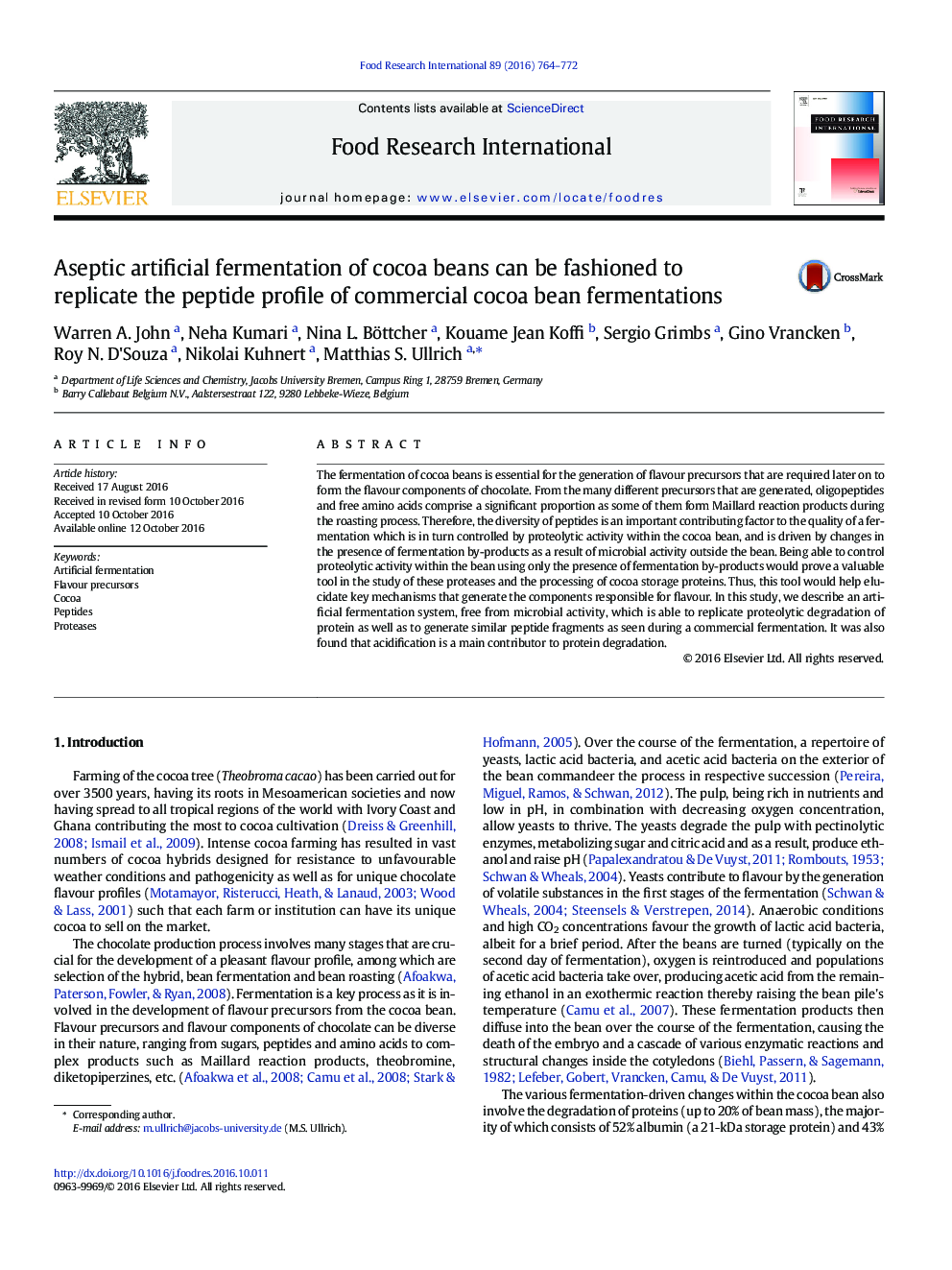| کد مقاله | کد نشریه | سال انتشار | مقاله انگلیسی | نسخه تمام متن |
|---|---|---|---|---|
| 6394923 | 1330629 | 2016 | 9 صفحه PDF | دانلود رایگان |
- Protein and peptide studies of a lab-scale artificial cocoa bean fermentation system.
- Acetic acid plays a major role in protein degradation and peptide formation.
- Cocoa bean endo- and exoproteases exhibit high activity pH ranges in situ.
The fermentation of cocoa beans is essential for the generation of flavour precursors that are required later on to form the flavour components of chocolate. From the many different precursors that are generated, oligopeptides and free amino acids comprise a significant proportion as some of them form Maillard reaction products during the roasting process. Therefore, the diversity of peptides is an important contributing factor to the quality of a fermentation which is in turn controlled by proteolytic activity within the cocoa bean, and is driven by changes in the presence of fermentation by-products as a result of microbial activity outside the bean. Being able to control proteolytic activity within the bean using only the presence of fermentation by-products would prove a valuable tool in the study of these proteases and the processing of cocoa storage proteins. Thus, this tool would help elucidate key mechanisms that generate the components responsible for flavour. In this study, we describe an artificial fermentation system, free from microbial activity, which is able to replicate proteolytic degradation of protein as well as to generate similar peptide fragments as seen during a commercial fermentation. It was also found that acidification is a main contributor to protein degradation.
173
Journal: Food Research International - Volume 89, Part 1, November 2016, Pages 764-772
